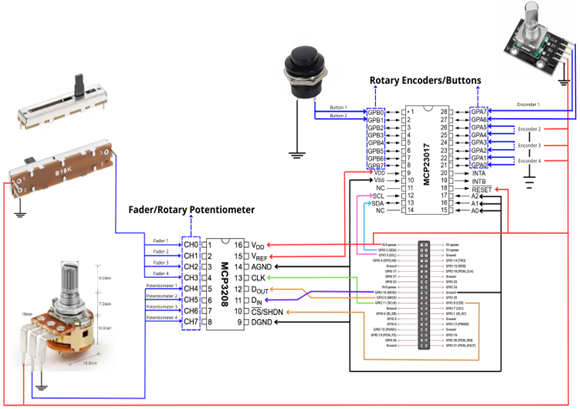Historically, synthesizers have been an important part of music composition and production, and with the way music has evolved over the past few decades, their popularity has only grown. Many other music production tools have become cheaper and more widely available over time, such as digital audio workstations (DAWs) and MIDI keyboards; hardware synthesizers have not followed this trend. Today, hobbyists face the challenge of choosing between affordable synthesizers with extremely limited sound design capabilities, or prohibitively expensive synthesizers that offer a full range of functionality. Our project, the Micro Synthesizer, aims to deliver a product that fills this gap in the market by being an affordable yet highly functional synthesizer. In order to achieve this we will be using a Raspberry Pi 5 at the core of our design, along with high-performance digital signal processing libraries to handle both signal creation and signal processing. Then, in order to achieve a similar sound design workflow that high-end synthesizers offer, we will integrate a variety of physical controls, such as rotary potentiometers, rotary encoders, and push buttons.

 RiskWatch: Non-intrusive wearable fall de...
RiskWatch: Non-intrusive wearable fall de...
 SmartPill: Automated Medicine Dispenser S...
SmartPill: Automated Medicine Dispenser S...










